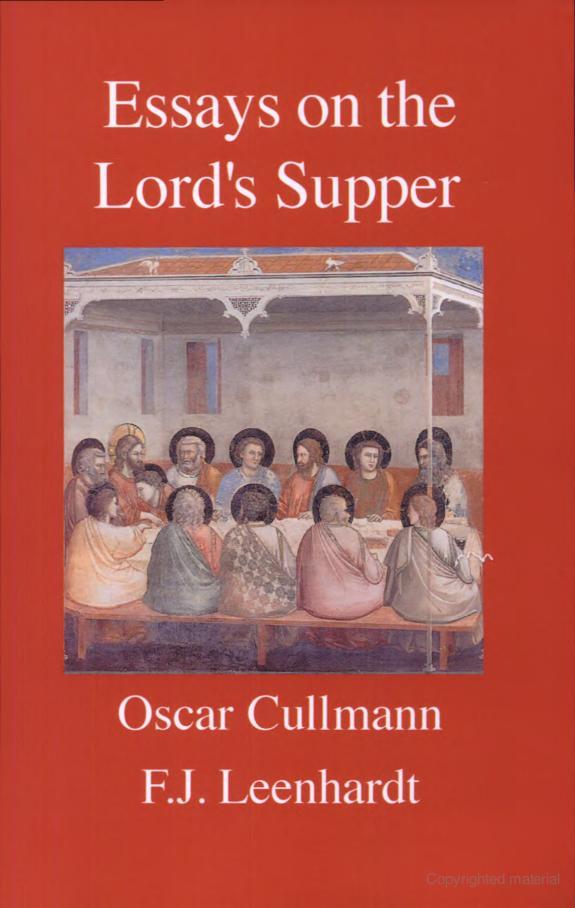 Oscar Cullman's book, Essays on the Lord's Supper (amazon) contains a helpful essay: The Meaning of the Lord's Supper in Primitive Christianity (available at Google Books).
Oscar Cullman's book, Essays on the Lord's Supper (amazon) contains a helpful essay: The Meaning of the Lord's Supper in Primitive Christianity (available at Google Books).
Oscar Cullman suggests a cultic origin to the Lord's Supper, suggesting that the meal was a continuation of the daily meals that Jesus enjoyed with his disciples, and that the Institution of the Lord's supper in the Synoptic tradition was only a continuation of those meals. Cullman believes that originally the Lord's Supper did not proclaim the death and resurrection of Christ until Paul modified the teachings on it decades later. And he cites the Didache and St. Hippolytus as two simultaneous traditions that existed in parallel until the teaching was Romanized into the Eucharist.
Cullman considers how the Lord's supper was original referred to as the "breaking of break" and the "sharing of the break and salt" in early sources. The Lord's Supper was practiced with water and bread in some of the early Church records. Also, there is a tradition of eat fish with the meal, according to the Didache. The spreading of the bread and fish on the mountains, represented all the world having communion with Christ until he comes, rather than a proclamation of his death. Whether you agree with Cullman, there is a mysterious correlation between the fish and bread throughout the New Testament that his may enlighten, particularly in the feeding of the masses.
Oscar Cullman admits that there are some unanswered questions to his essay within the Fourth Gospel, but states that he believes that the Fourth Gospel was built on top of Pauline Theology.



March 10th, 2018 - 03:54
Thanks – some fascinating food for thought here